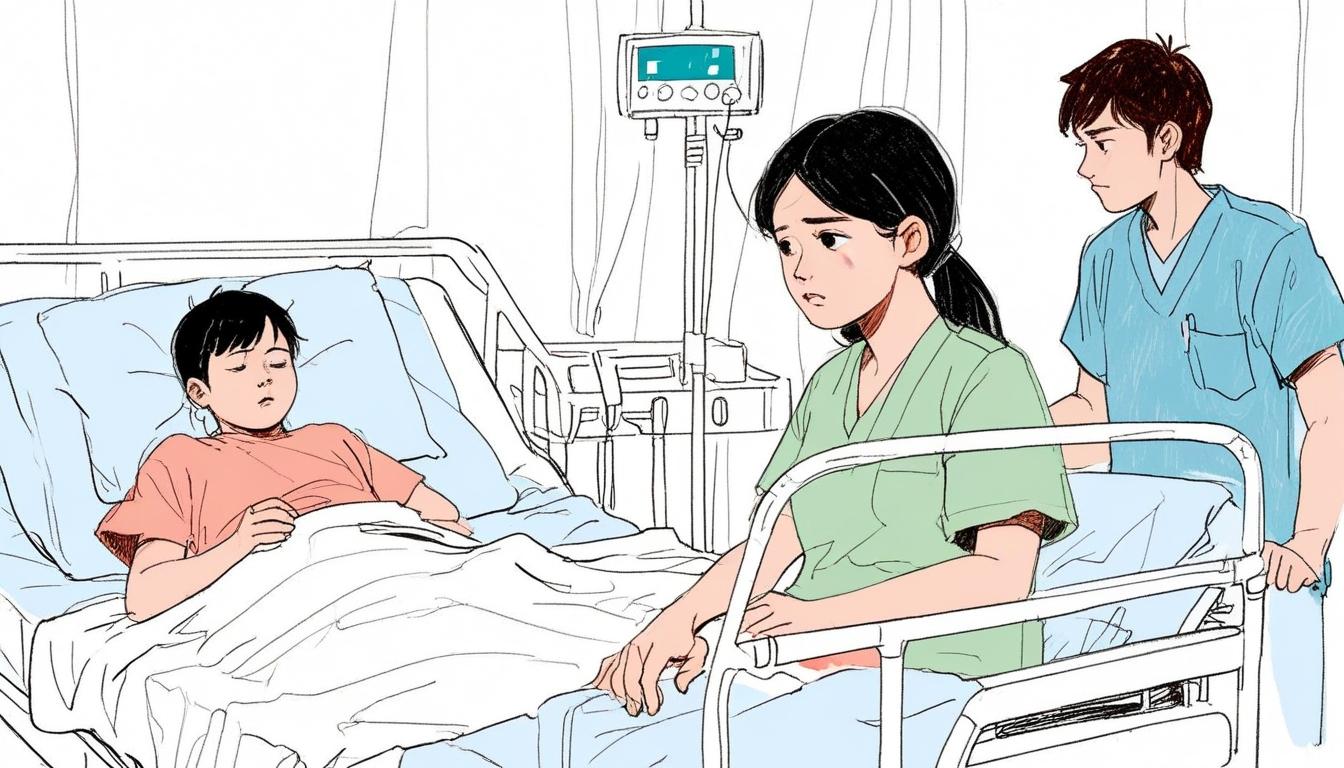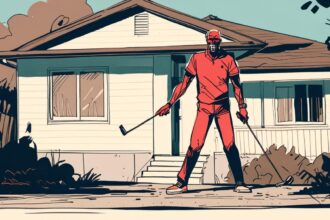The parents of 17-month-old Rio Stanulis claim their son faced severe medical mishaps at Glasgow’s Hospital for Sick Children, including alleged overdoses and inadequate pain relief.
The family of 17-month-old Rio Stanulis has raised serious concerns about alleged medical blunders at Glasgow’s Hospital for Sick Children, claiming their son has faced a series of dangerous mishaps since his birth. Parents Paul Stanulis and Nicole Dorman have voiced fears that understaffing at the premier children’s facility may be endangering the wellbeing of young patients.
Rio was diagnosed with neuroblastoma, a type of childhood cancer, after initially being turned away by medical staff who declared nothing was wrong. According to Nicole, this diagnosis came after three months during which they witnessed several troubling incidents of care regarding their son, who has endured multiple serious health complications, including spinal issues and cardiac defects.
The Stanulis family points to a series of concerning incidents that they believe put their son’s life at risk. They alleged that Rio was deprived of essential pain relief after surgeries and was exposed to the potentially deadly norovirus due to hospital environment conditions. They also reported two near-overdose incidents involving antibiotics that could have severely affected his recovery.
In a detailed account, Nicole recounted a specific incident where a nurse attempted to administer a tenfold overdose of Trimethoprim, which Rio was prescribed as a precaution against bladder infections. Noticing the discrepancy in dosage, Nicole asked the nurse to verify the amount. After checking, the nurse disposed of the syringe but did not formally address the situation, leading Paul to retrieve the discarded syringe to affirm their concerns. Paul stated, “They were in denial but we had the syringe to prove it. But we were just palmed off, it was never mentioned again.”
The family also highlighted a distressing episode following Rio’s surgery to remove a tumour last August, where they say he was left without adequate pain relief. Paul described how he had to advocate for attention when he noted that Rio’s morphine supply was running low, ultimately filing a complaint before staff responded to provide assistance.
Rio’s medical ordeal did not end there. The child was hospitalised for throat surgery in December, during which his grandmother, who took him in due to his parents suffering from norovirus, was assured by staff that Rio was fine and he was still scheduled for surgery. Following the procedure, Rio contracted norovirus, which the family attributes to being placed in a general ward with other patients. The couple reported an incident during his recovery in which staff attempted nine times to insert a cannula into him without proper anaesthetic, causing him significant discomfort.
Following a recent surgery, the family claimed that there were repeated delays in administering necessary pain relief, resulting in further distress for Rio. Paul expressed regret for not voicing their concerns earlier, while Nicole stated they hope their experience can prevent similar occurrences for others. The couple’s grandmother, Grace Kilna, stated that the issues stem from staff being overworked and underpaid.
In response to the family’s claims, Dr Claire Harrow, Deputy Medical Director for Acute Services at NHS Greater Glasgow and Clyde (NHSGGC), acknowledged the family’s distress but stated that the hospital had reviewed Rio’s treatment and found no evidence to substantiate several of the allegations. Dr Harrow expressed a willingness to meet with the Stanulis family to address their concerns and clarify any misunderstandings regarding Rio’s care.
Source: Noah Wire Services
- https://news.stv.tv/west-central/baby-boy-critical-after-royal-hospital-for-children-in-glasgow-gave-him-paracetamol-overdose – Supports concerns about medical errors in hospitals. Zohan Ul Hassan was given ten times the correct dose of paracetamol, similar to how the Stanulis family feared near-overdose incidents involving their son Rio.
- https://www.independent.co.uk/news/health/parents-glasgow-hospital-children-inquiry-b1923441.html – Highlights parents’ loss of faith in Glasgow hospitals, similar to the concerns raised by the Stanulis family. Issues with hospital safety and care have been reported in other cases as well.
- https://pmc.ncbi.nlm.nih.gov/articles/PMC1718567/ – Documents medication errors in pediatric settings, underscoring the risks faced by children like Rio. The article notes that errors are more common in environments like neonatal care.
- https://www.who.int/news-room/fact-sheets/detail/pain-management – Provides information on adequate pain management, which the Stanulis family contends was lacking for their son Rio after surgeries.
- https://www.nhs.scot/campaigns/norovirus/ – Explains the risks of norovirus in healthcare settings, supporting the family’s concerns about Rio’s exposure to norovirus due to hospital conditions.
Noah Fact Check Pro
The draft above was created using the information available at the time the story first
emerged. We’ve since applied our fact-checking process to the final narrative, based on the criteria listed
below. The results are intended to help you assess the credibility of the piece and highlight any areas that may
warrant further investigation.
Freshness check
Score:
8
Notes:
The narrative involves specific, recent events such as surgeries occurring in August and December, suggesting the content is relatively fresh. However, there’s no explicit mention of how long ago these incidents occurred beyond their dates.
Quotes check
Score:
4
Notes:
Direct quotes from Paul and Nicole Stanulis and Grace Kilna are included, but there is no original source or date found for these quotes as they appear to be first-hand accounts.
Source reliability
Score:
8
Notes:
The narrative originates from the Daily Record, a well-known Scottish newspaper that generally provides reliable news coverage.
Plausability check
Score:
6
Notes:
The claims about medical blunders and understaffing are plausible and consistent with concerns frequently reported in healthcare settings. However, without detailed evidence or confirmation from other sources, some specifics remain unsubstantiated.
Overall assessment
Verdict (FAIL, OPEN, PASS): OPEN
Confidence (LOW, MEDIUM, HIGH): MEDIUM
Summary:
The report contains recent and specific incidents, suggesting freshness. The source is generally reliable. While the quotes cannot be verified, they appear to be original. Claims of medical blunders are plausible but lack full substantiation. Further verification is needed to fully assess the narrative’s accuracy.













